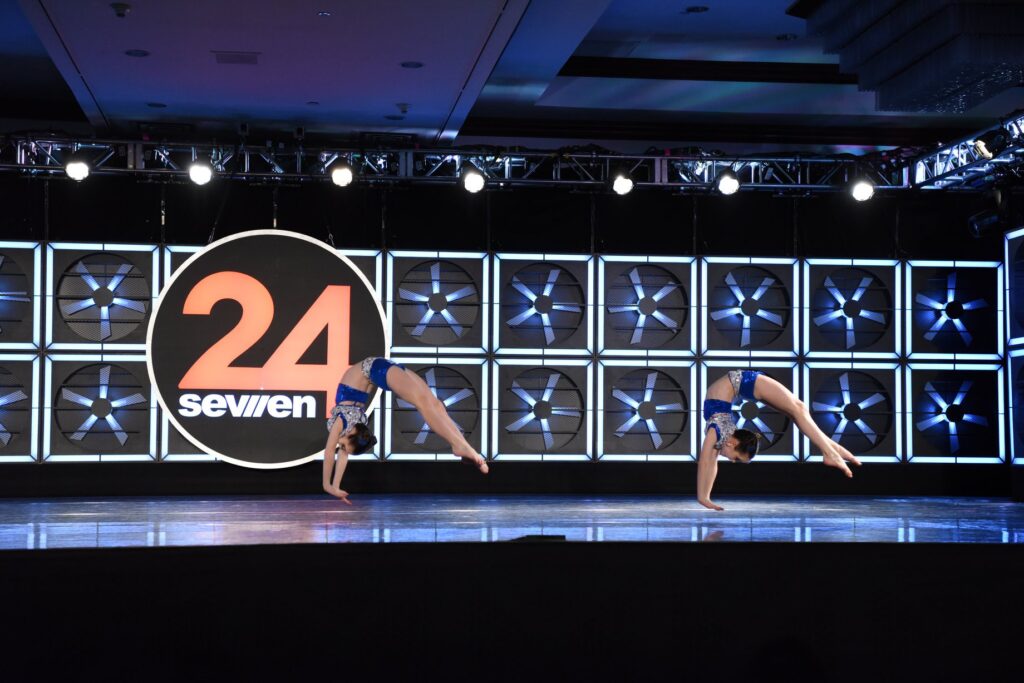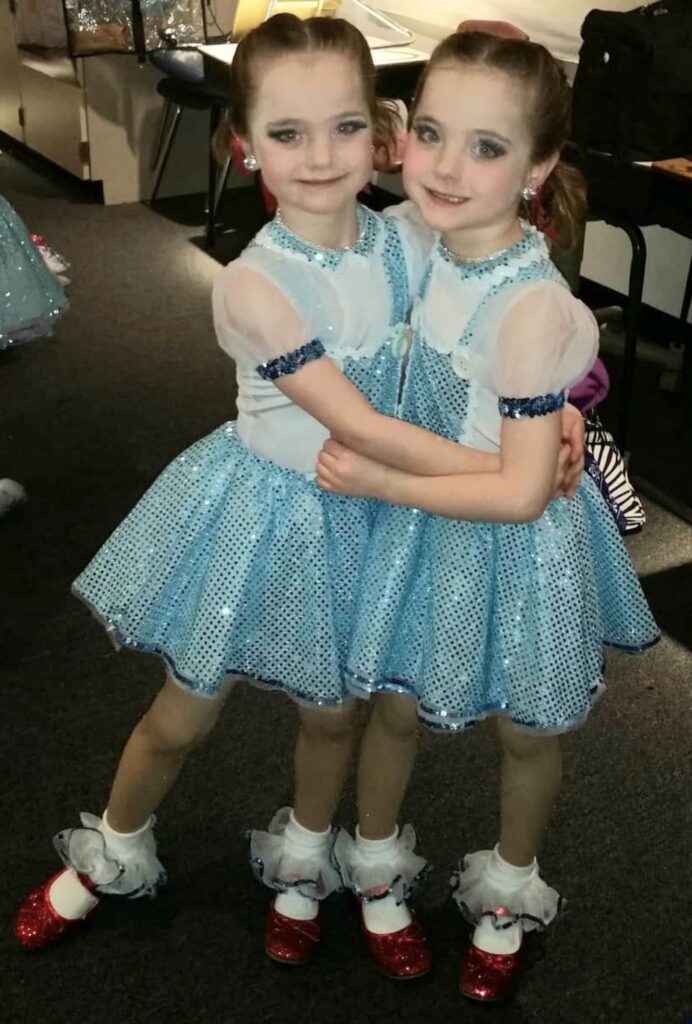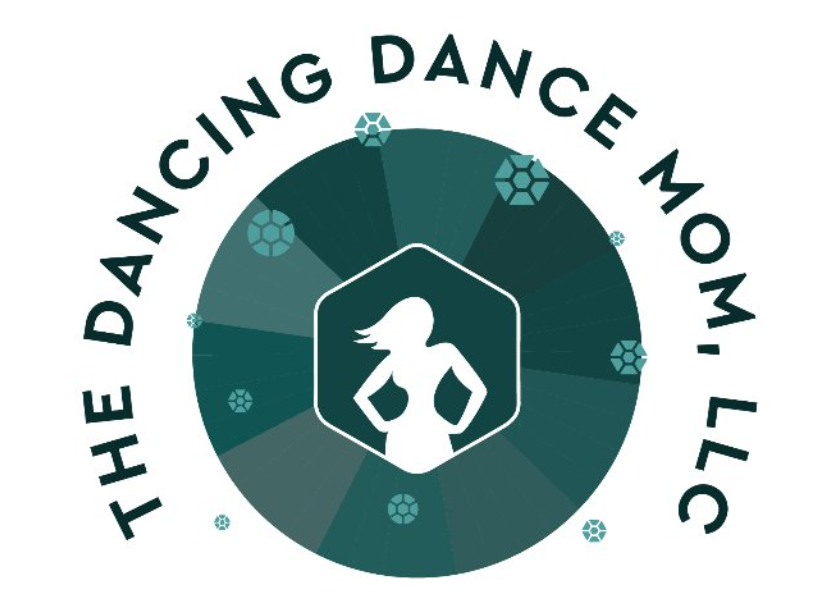Awhile back, I asked dance moms on my Facebook page what advice they would give to first-time moms who are dipping their toes into the competitive dance world waters. As always, their responses created much food for thought (and I’ve listed their first names to give them credit)! These tips focus on the perspectives and guiding principles that will help first-year dance moms to keep focused on what’s important to make the most of this experience!
1. Only worry about your child, and do what’s best for her/him (Kerrie, Amanda, Erin).

This might be a lot easier said than done – after all, we all want our children treated equally. So if you hear that another child was given a special part, privilege, etc., it’s natural to wonder why it wasn’t your cherub that received it. Don’t let the frustration flip your B!tch Switch; just keep in mind that there are often other variables at play (aside from the ones you’re aware of).
Instead, use the opportunity to teach your children to accept that there are decisions beyond their control, the other child may have extenuating circumstances that are no one else’s business, and that they should only invest their mental energy into improving themselves.
2. Don’t compare your child to others (Kerrie, Nicole, Krisi, Jennifer, Holly).
Let’s face it – judges and teaching staff regularly rank dancers on their ability, presence, work ethic, and other elements, both on and off the competition stage. So it’s no surprise that the kids and parents might be inclined to do so as well. Being identical twins, my girls compare each other pretty often (I guess it’s to be expected when you share the same exact DNA with another person).
But comparison is truly the thief of joy, and holding your child to a standard that she/he is unable to attain right then is a losing battle that may be loaded with collateral damage. Personally, I like to tell my girls to be a little better than they were yesterday, and to compare themselves only with yesterday’s version of themselves. This helps them to maintain a perspective that fosters growth.
3. Focus on progress rather than winning (Leigh, Ayn, Cyreeta).
During a competition a couple of years ago, one of my girls was positive that her solo would place higher than it did at the previous one (I’m not mentioning which girl, because they actually read these and would be mortified if I called out the specific twin here). She was more flexible than last time, her facials were more engaging, and her balance moves were more solid. I tried to warn her that it was more important that she FELT like she put in a better performance; rankings are based on the total number of dancers, and she had no control over what the other kids brought to the stage that day.
So imagine how shocked she was when she placed a few numbers lower than she had previously. She wasn’t ready to hear it then, but I knew she “got” the lesson weeks later when she chose to watch the video of the second competition over the first because, in her words, “That one was way better.” If your dancer sets small, attainable goals, it will help them to see that they are actually making progress (and that’s what’s important).

4. Trust the professionals (Nora, Cyreeta, Sarah, Theresa).
You know how on Dance Moms, sometimes a mother would walk into the studio to confront Abby about something she said to the kid (and we all thought to ourselves, “That was NOT a good idea!”)? Yeah, don’t do that. If your child’s teachers regularly hurl inflammatory, obnoxious insults that compel you to march into the room, then maybe you shouldn’t be there in the first place. But apart from truly egregious lapses in judgment (they do happen), let the professionals handle the situations as they arise.
After missing out on placing in the Final Five at the World Dance Championship during their first year of competition, my Jayden started crying with disappointment (the girl wears her heart on her sleeve; I wonder where she gets it from?). Her teacher walked over, crouched down, and firmly said to my weeping six year-old, “No tears! We do not cry!” At first, I was a little taken aback because it was my poor, heartbroken baby girl she was talking to, basically telling her to suck it up.
But I kept my mouth shut, and Jayden did, indeed, begin to suck it up. Our kids let their guards down when they’re with us, so having the pro step in and take control is usually the right way to go. As a first-year dance mom, you might consider stepping back to observe for awhile before voicing your opposition right away.

5. Teach your dancer to be humble, and listen to critiques with an open mind (Amanda).
No one stays at the top forever; a dancer who is constantly lauded and applauded may come to expect success, and may stop fighting hard for it. When these kids have an off day, they may start blaming external factors for their subpar performance. If your dancer is talented and lucky enough to win an award, get that solo, be named caption, etc., it’s a good opportunity to remind them to be humble, and to keep an open mind to the critiques they receive. Rather than dismiss this valuable feedback, encourage your dancer to identify what they can learn from it. Nobody’s perfect, so accepting that there is always room for improvement is an important step towards growth.
Read more: First-Year Dance Moms, Perspective, Part 2, First-Year Dance Moms – Sharing the Load and 7 Practical Tips!
Work hard, have fun! – Danielle

